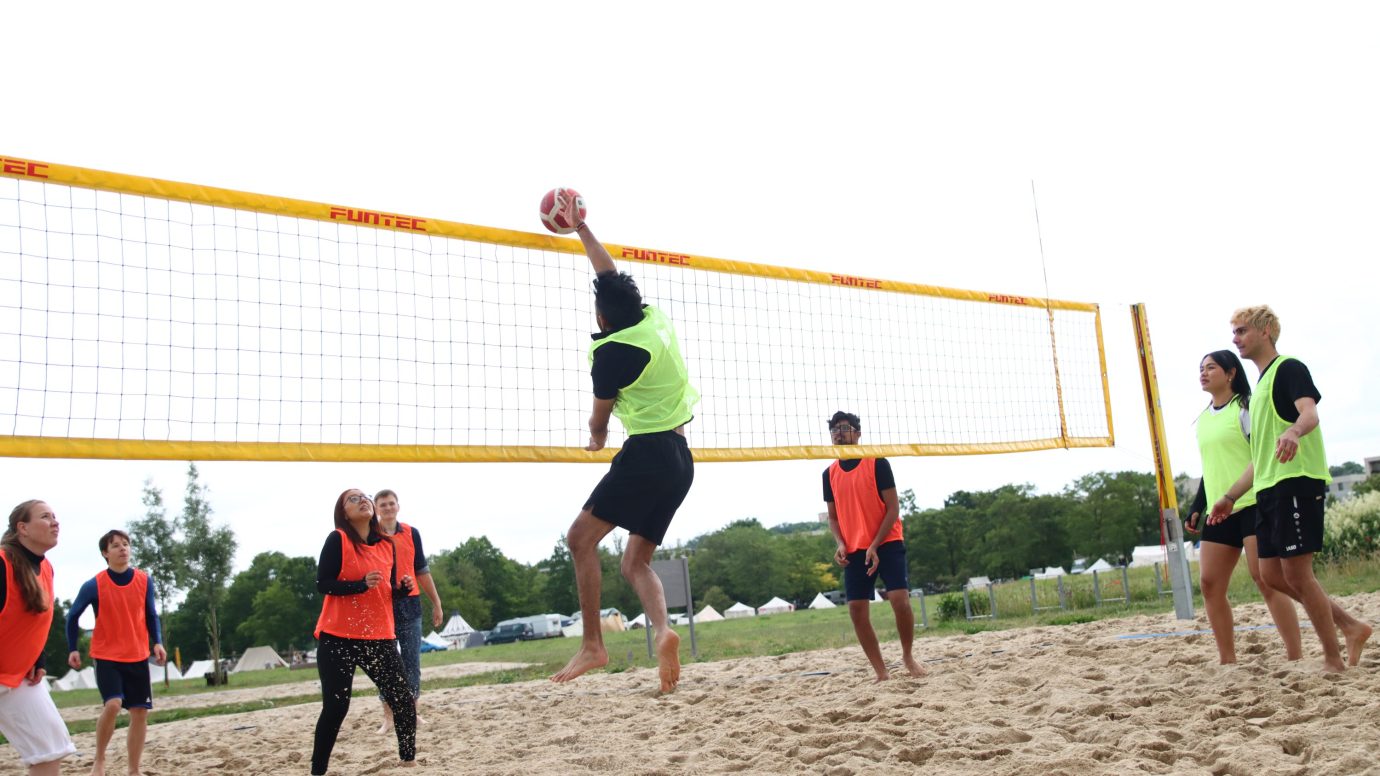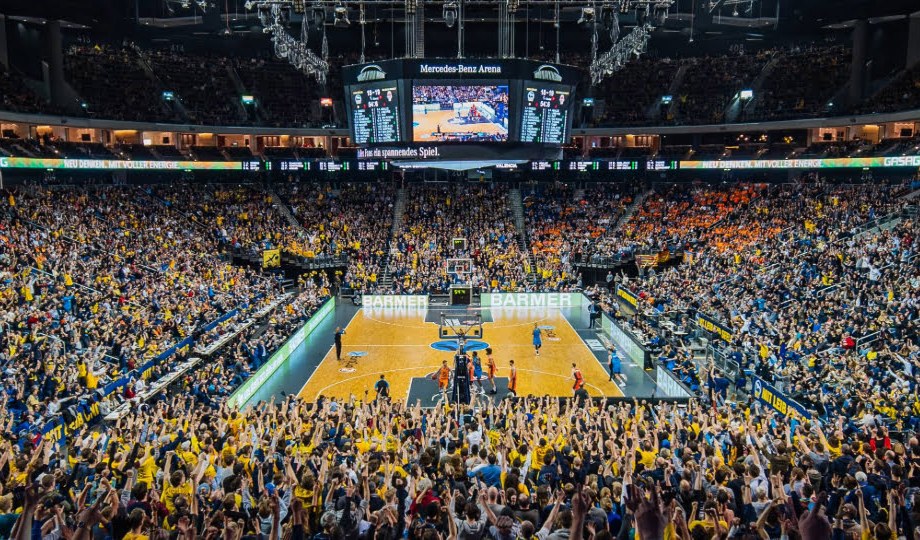
The global sports industry is a multi-billion-euro powerhouse, and behind every top athlete and major sporting event is a dedicated team of skilled professionals.
If you’re eager to turn your passion for sports into a career, two academic paths often come into focus: a sports management degree and a sports science degree. Both are rooted in the world of athletics, but they open the door to very different career opportunities.
This guide takes a closer look at the key differences between a sports management degree and a sports science degree. We’ll explore the curriculum, the skills you’ll gain in each, the career paths they open up, and the future trends shaping the sports industry.
By the end, you’ll have a clearer picture of which degree best matches your goals.

What Is Sports Management?
A bachelor’s in sports management prepares you for the commercial and administrative roles that keep organisations running, from professional teams and leagues to marketing agencies, stadiums, and community programmes.
Graduates are well-equipped for careers that boost revenue and strengthen fan engagement — a timely advantage as Germany’s sports sponsorship market is projected to grow at a 6.2% CAGR through 2032.

What Is Sports Science?
A sports science degree prepares you to work closely with athletes, helping them train effectively, avoid injuries and recover from them, and improve both physical and mental performance. It’s a strong choice for anyone inspired by the body’s potential, and with wearable tech and personalised training on the rise in 2026, graduates are shaping the future of athlete health.
Key Differences Between Sports Management vs Sports Science Degrees
The main difference comes down to focus: sports management looks at the business of sport, while sports science centres on the athlete. The table below shows a clear, side-by-side comparison.
| Feature | Sports Management Degree | Sports Science Degree |
| Primary Focus | Business, administration, and commerce of sports. | Human performance, physiology, and athlete development. |
| Core Disciplines | Business Administration, Marketing, Finance, Law, Ethics, Event Management. | Anatomy, Physiology, Biomechanics, Psychology, Nutrition, Strength & Conditioning. |
| Typical Classroom | Case studies, business plans, project management, guest lectures from industry executives. | Laboratories, hands-on training sessions, physiological testing, research projects. |
| End Goal | To manage and lead sports organisations profitably and effectively. | To enhance athlete performance, health, and well-being through scientific methods. |
| Ideal For | Students with strong leadership, communication, and business acumen. | Students with a passion for human biology, data analysis, and direct athlete interaction. |
Skills You’ll Develop: Sports Management vs Sports Science Degrees
Skills in Sports Management
A BSc Sports Management degree develops your professional and strategic skills. You will gain:
- Strategic Leadership and Business Acumen: Guiding an organisation towards financial and brand success.
- Financial Management: Planning budgets and generating revenue for teams or events.
- Marketing and Sponsorship Sales: Designing campaigns to engage fans and secure partnerships.
- Event and Facility Management: Managing the logistics of games, tournaments, and venues.
- Legal and Ethical Decision-Making: Handling contracts, negotiations, and industry regulations.
Skills in Sports Science
A sports science degree equips you with technical and analytical skills. You will gain expertise in:
- Biomechanical Analysis: Using technology to analyse movement and improve technique while reducing injury risk.
- Physiological Assessment: Conducting fitness tests (e.g., VO2 max, lactate threshold) to monitor an athlete’s condition.
- Strength and Conditioning Programming: Designing training regimens to build power, speed, and endurance.
- Nutritional Planning: Advising on diet and supplementation for optimal performance and recovery.
- Data Interpretation and Research: Using scientific data to inform training decisions and interventions.
Popular Jobs for Sports Management Graduates vs Sports Science Graduates
Careers in Sports Management:
- Sports Agent
- Athletic Director
- Event Manager
- Marketing Manager
- Facility Operations Manager
Careers in Sports Science
- Performance Analyst
- Strength and Conditioning Coach
- Exercise Physiologist
- Sports Nutritionist
- Biomechanist
Career Opportunities and Salaries in Sports Management vs Sports Science Degrees
The future of sports management and the future of sports science are both bright, driven by the expanding commercial and scientific opportunities within the sports industry.
Sports management job opportunities are often found in large cities that host major teams and corporate headquarters, while sports science job opportunities can be found with teams, national institutes, private clinics, and research facilities worldwide.
Salaries depend on experience, location, and employer, but here’s a general overview from the German market:
- Sports management salary: Entry-level roles start around €31,200/year, with managerial positions earning on average €67,631 per year.
- Sports science salary: Exercise specialists can expect around €31,330/year, while experienced coaches in major cities can earn upwards of €70,000 per year.
What are the challenges specific to the sport management sector?
The challenges in sports management are navigating a highly competitive job market, adapting to the fast pace and irregular hours of game seasons, and working under the spotlight of media and public attention, all while handling the responsibility of major contracts and franchise decisions.
Sports Management vs. Sports Science: Industry Trends You Should Know
Keeping up with sports industry trends is essential for anyone aiming to build a career in sports. Below are some of the key developments shaping both sports management and sports science.
- Data Analytics and AI: Driving fan engagement, ticket pricing, and player valuation in management, while advancing performance, injury prevention, and personalised training in sports science.
- Esports Expansion: Creating new roles in management (league operations, marketing) and sports science (player health, cognitive training).
- Athlete Wellness & Mental Health: Growing demand for specialists supporting athletes’ psychological and holistic development.
- Sustainability in Sports: Stadiums and events adopting green initiatives, opening roles in sustainability management.
- Personalised Fan Experience: Using technology to deliver tailored content and engagement both online and in-venue.
Which Sports Degree Is Right for Me?
Choosing between a sports management degree and a sports science degree ultimately comes down to your personal strengths and career aspirations.
Choose a Sports Management degree if:
- You are fascinated by the business, marketing, and strategy behind sports.
- You have strong communication, leadership, and organisational skills.
- Your dream is to run a sports organisation, manage events, or represent athletes.
- You are a strategic thinker who enjoys a fast-paced, corporate-style environment.
Choose a Sports Science degree if:
- You have a passion for human biology, anatomy, and exercise physiology.
- You are analytical, enjoy working with data, and love hands-on problem-solving.
- Your goal is to work directly with athletes to improve their performance and health.
- You see yourself in a lab, on a training pitch, or in a clinical setting.
Regardless of your choice, a forward-thinking institution like the University of Europe for Applied Sciences (UE) offers the practical experience and industry links to launch your career in either field.
We provide undergraduate programmes such as the BSc Sport & Event Management and BA Sports Science: Fitness & Health, as well as postgraduate options like the MA International Sport & Event Management.
You can find all our Business and Sports programmes here.
Conclusion
Both a sports management degree and a sports science degree open exciting pathways into the fast-moving world of sports. The difference between sports management and sports science is significant, yet each plays an important role in the industry’s success.
By carefully considering your interests, skills, and long-term goals, you can make an informed decision that sets you on the path to a fulfilling career.